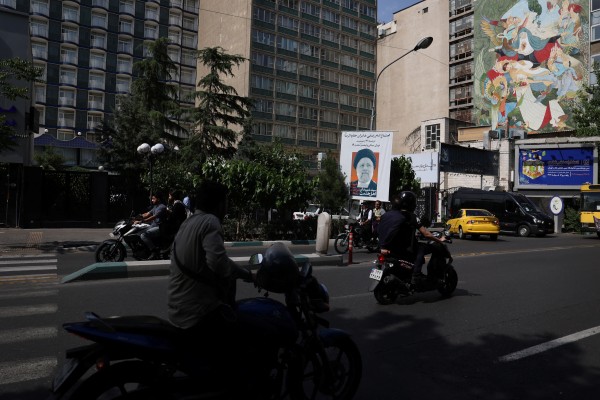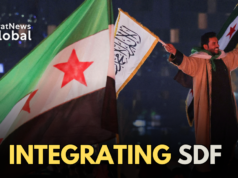DUBAI: Iran proclaimed five days of mourning for hardline President Ebrahim Raisi on Monday. But the public grief seen over the deaths of other senior figures in the Islamic Republic’s 45-year history was missing.
Government loyalists packed into mosques and squares to pray for Raisi and Foreign Minister Hossein Amir Abdollahian. But most shops remained open, and the authorities made little effort to interrupt ordinary life.
Opponents even posted furtive videos online of people passing out sweets to celebrate his death.
People in Iran sharing sweets this morning on the occasion of the death of the President of the Islamic regime
Via @ItsDecado pic.twitter.com/abLgYgHjFZ
— Visegrád 24 (@visegrad24) May 20, 2024
Laila, a 21-year-old student in Tehran, told Reuters by phone that she did not feel sadness over Raisi’s death, “because he ordered the crackdown on women for hijab.”
“But I am sad because even with Raisi’s death this regime will not change,” she said.
Hundreds of Iranians died in 2022-2023 demonstrations sparked by the death a young Iranian Kurdish woman arrested by morality police.
The authorities’ handling of various political, social and economic crises have widened the gap between hardline clerical rulers and society.
Iran’s Supreme Leader declares five days of mourning after the tragic helicopter crash claims President #Raisi‘s life. The Imam Reza Holy Shrine raises a black flag in honor of the fallen leader and his entourage. 🇮🇷 #IranMourns #Iran pic.twitter.com/oonXGleS0m
— Ghulam Abbas Shah (@ghulamabbasshah) May 20, 2024
Supporters of the hardline clerical establishment spoke admiringly of Raisi, a hardline jurist elected in a tightly controlled vote in 2021.
But there was little of the emotional rhetoric that accompanied the deaths of publicly revered figures like Qasem Soleimani. A senior commander of Iran’s elite Revolutionary Guards killed by a U.S. missile in 2020 in Iraq, his funeral drew huge crowds of mourners.
Many Iranians said they expected that Raisi’s death would have little impact on how the country would be ruled. The establishment was likely to replace him with another hardline figure, they felt.
“Who cares. One hardliner dies, another takes over and our misery continues,” said Reza, 47, a shopkeeper in the central desert city of Yazd.
“We’re too busy with economic and social issues to worry about such news.”
(REUTERS)
In a career spanning three decades and counting, Ramananda (Ram to his friends) has been the foreign editor of The Telegraph, Outlook Magazine and the New Indian Express. He helped set up rediff.com’s editorial operations in San Jose and New York, helmed sify.com, and was the founder editor of India.com.
His work has featured in national and international publications like the Al Jazeera Centre for Studies, Global Times and Ashahi Shimbun. But his one constant over all these years, he says, has been the attempt to understand rising India’s place in the world.
He can rustle up a mean salad, his oil-less pepper chicken is to die for, and all it takes is some beer and rhythm and blues to rock his soul.
Talk to him about foreign and strategic affairs, media, South Asia, China, and of course India.





